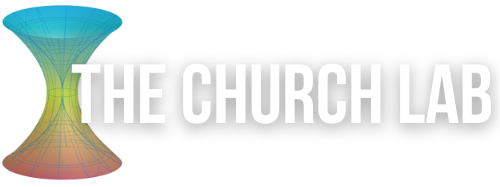written by TCL Board member Wendy Cooper
Wendy Cooper is a long-time TCL cheerleader and first-year Board member. She earned a Master of Arts in Family Studies from Fuller Theological Seminary and a Master of Social Work from the University of Houston. Wendy currently works in legal compliance in the energy industry and hopes The Church Lab one days expands to Houston.
In mid-August, The Church Lab Board of Directors and staff met for their annual Board Retreat. Like many things in 2020, it looked a little different than years past, with Board members logging into the virtual meetings from across the country. While many aspects of the retreat were different, the core elements remained the same. We talked strategy, vision, budgets, and fundraising. We set goals for ourselves and the organization. We celebrated the past, honored the present, and prayed for the future of TCL.
Although this is my first year as a Board member, I am not new to The Church Lab. I have been supporting TCL with my prayers, gifts, and encouragement from the beginning. Not only does TCL’s mission of exploring innovative paths to spiritual maturity resonate deeply with my own spiritual journey, but I have also experienced God’s profound presence through my interfaith friendships. Carrie’s gift for building bridges has always been inspiring, and I think the need for that kind of passion will only continue to grow. After engaging with TCL from the periphery for many years, it is now my honor to serve the organization as a Board member.
A highlight of this year’s Board Retreat was the opportunity to join dialoguers for a special Thursday evening dialogue. TCL has long embraced the idea of participating in dialogues virtually, but it was wonderful to see the group thriving and connecting even without the majority of participants being in Carrie’s living room. The regular dialoguers graciously welcomed us as we explored the topic of Suffering and Inequity. The entire group’s ability to collectively hold space for one another allowed us to discuss this deeply personal topic in an open and supportive way.
True to the spirit of TCL, the retreat was filled with moments of fun and creativity, fueled in no small part to the goodie boxes Carrie and Ollie mailed to each participant beforehand. There were post-it notes and workbooks for those who like to write things down but also play-doh and stickers for those who choose to express themselves more creatively. If you want to know what makes a Zoom meeting a party, give everyone on the call a maraca and see what happens.
In addition to connecting over moments of fun, the work we engaged in as a Board of Directors is an essential component of the continued success of TCL. The Board approved a budget and fundraising goals that are higher than ever, not as an aspiration but as an accurate reflection of where The Church Lab is going. The seeds Carrie planted many years ago are beginning to grow and with that comes the need for additional resources. As a Board of Directors, we are committed to taking active roles in supporting the mission and work of TCL.
Although 2020 has brought us endless uncertainty, it has become clear that the work of The Church Lab is indispensable to individuals and faith communities adapting to non-traditional worship experiences. And it could certainly be argued that building bridges among people of differing perspectives is now an essential skill as the world continues to bend toward justice. Guided by God and connected to the community, TCL will continue to innovate and boldly move into the future.




















